As I walked into the DCU sports hall on a Saturday afternoon, I was struck by the sights and sounds that surrounded me. Flags from different countries decorated the walls as a centuries old form of combat was on show.
While fencing may have its roots in dueling and outwitting your opponent, I quickly gathered that it's more of an internal battle both physically and mentally.
Shouts echoed around the hall as each fencer was spurred on by their teammates. The reason they were so animated is because they are counting on their compatriot’s performance as much as their own.
Fencers from England, Scotland, Ireland, Northern Ireland and Wales had all gathered in DCU for the annual Five Nations tournament. The competition consists of an Italian relay which sees teams of three fencers go head to head, with the first team to reach 40 points winning the bout.
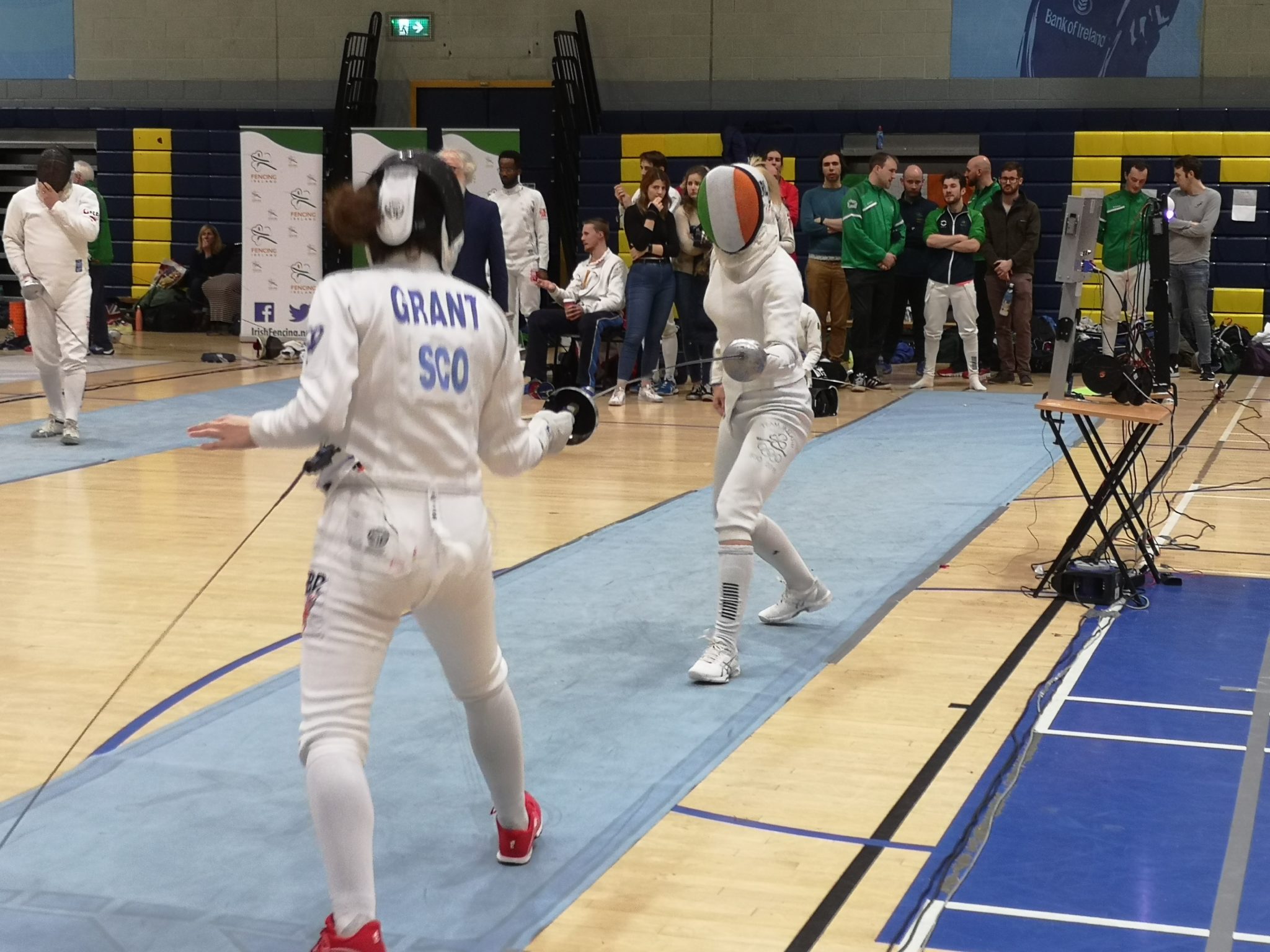 Natalia Coyle at the Five Nations Fencing Tournament
Natalia Coyle at the Five Nations Fencing TournamentTeams are split up into three distinct disciplines: épée, foil and sabre, each having a different weapon and a different style of fencing. Épee and foil tend to be more strategic, while sabre is a more aggressive form of the sport.
Countries like France, Italy, Hungary and more recently South Korea are powerhouses of the sport, but over the past few years, Ireland has slowly begun to establish itself on the world stage, especially at underage level.
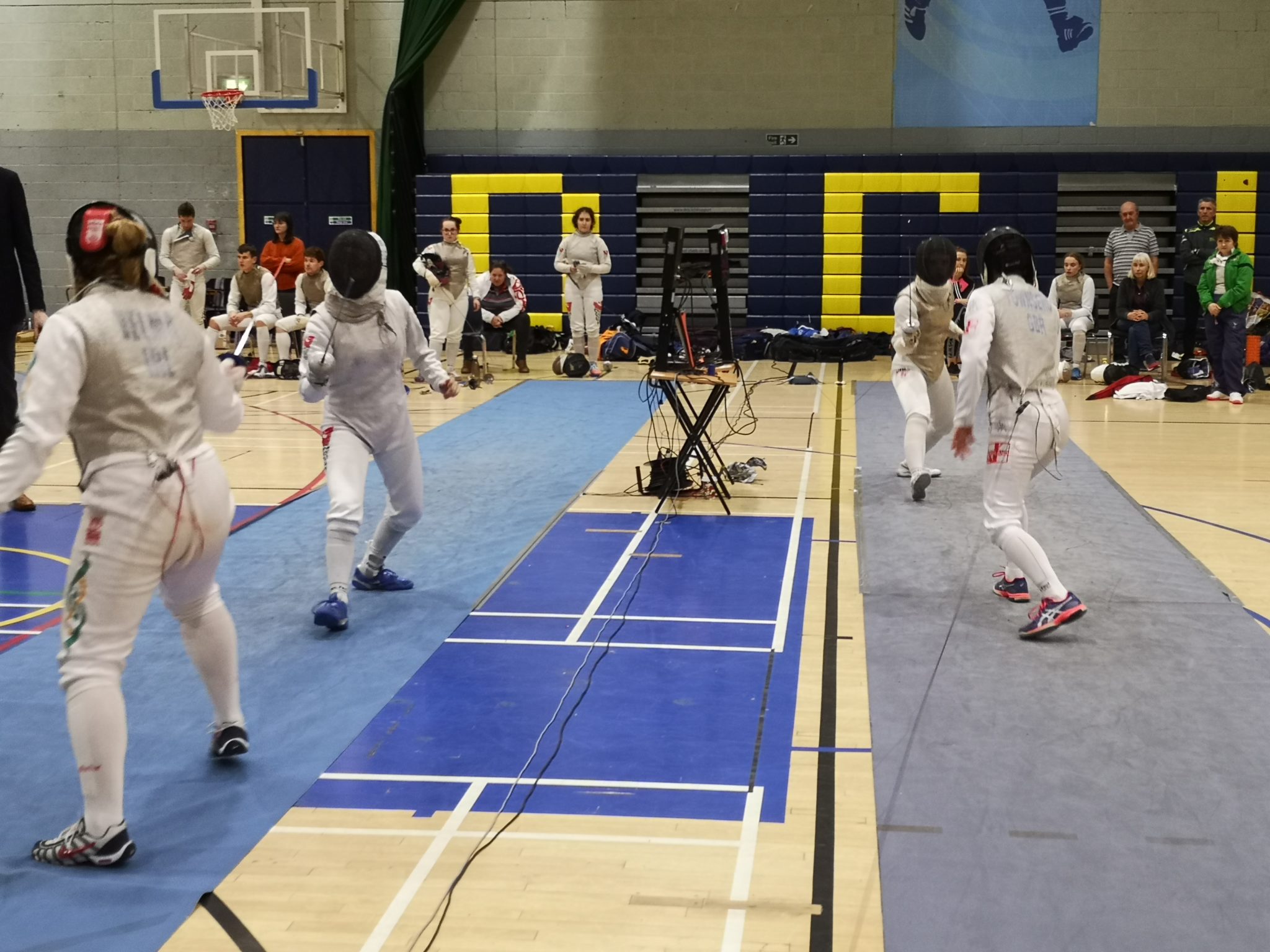
Pembroke Fencing
One of the best fencing clubs in the country in terms of developing young talent is Pembroke Fencing Club in Donnybrook. It was founded back in 2001 by Philip Lee and in recent years it is has seen several talented young fencers come through the ranks.
Philip Lee was the chairperson of Fencing Ireland until June 2019, when the role was then taken over by Desmond Gilhooly. The framework that Lee put in place as chairperson has really started to pay dividends in recent years.
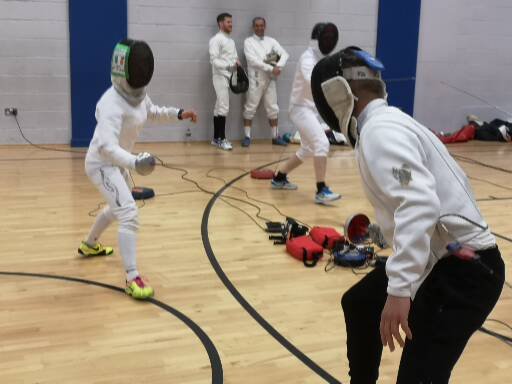 Pembroke Fencing, Donnybrook
Pembroke Fencing, DonnybrookWhen I spoke to Philip early last year, he talked about how a new generation of fencers are coming to the fore. "We're now beginning to get really amazing results with kids that are 10, 11 and 12 at international level.
"We're getting gold medals at International and European level and we're growing our coaching staff as well,” said Philip.
Another person who is tasked with training the next generation is Fencing Ireland's Development Officer, Colm Flynn. I spoke to him at the Five Nations tournament about his role and where Irish fencing stands. As he pointed out there are other clubs having success besides Pembroke.
"Brian Boru fencing club in Blanchardstown is starting to get some kids coming through as well. The north has some good young fencers as well and there is the Munster Blades down in Neenagh, who have some kids coming through," he said.
While he does help develop young fencers, he does have other duties as well.“Part of my role as development officer is getting the sport into more schools and trying to pick schools near clubs,” he said.
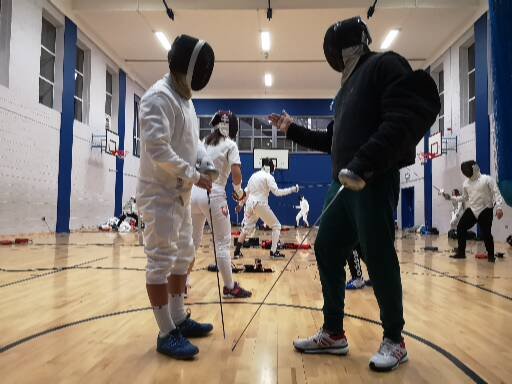 Pembroke Fencing, Donnybrook
Pembroke Fencing, DonnybrookThis has been one of the key differences over the past few years; there is a new generation of fencers who are learning the sport at a much younger age.
This means they’re technically much better fencers when they get into their 20s. This is crucial in a sport like fencing where your technical ability is tested as you face tougher opponents.
The question though is what has spurred on this transformation? One of the biggest reasons for the change is the influx of foreign coaches.
Pembroke Fencing for example recently employed the services of Estonian fencer Olga Velma, who at one point was the number two in the world in women's épée. Back in 2016, they also brought in Hungarian coach David Losonczi.
As Michalis said, one coach can have a huge impact. “The story of the major nations seems to be that behind a really strong coach, they can drag up the country to a much higher level for a long time. Then they coach the next round of coaches and everything else improves”, he said.
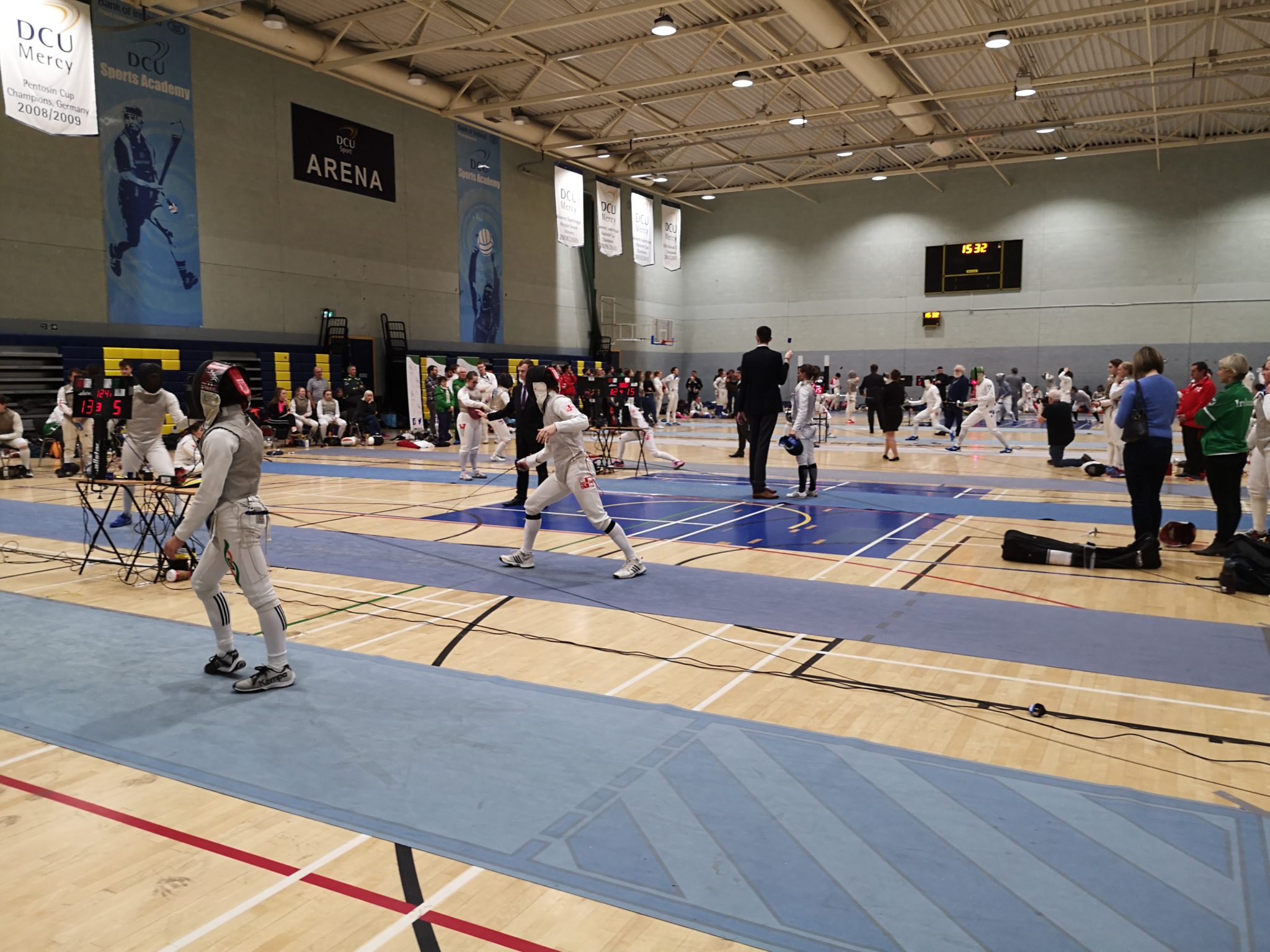 DCU Sports Hall, Five Nations Tournament
DCU Sports Hall, Five Nations TournamentIncreased funding
With any sport there needs to be the right support structures in place. More often that not this comes down to funding but there also needs to be someone with a vision.
I spoke with the new chairperson of Fencing Ireland, Desmond Gilhooly, about what the future holds for Irish fencing.
“We took on our first employee this year on a part-time basis, her name is Dearbhla. We also have a programme with Trinity College where we have a development officer in collaboration with their outreach projects for schools in the city centre area,” he stated.
Back in February, Sport Ireland announced it was increasing its funding for fencing from €27,000 a year to €55,000 year on the back of the results that they have been achieving.
As Desmond admitted himself, he does have a lot to live up to, as one of Philip Lee’s greatest achievements was developing young fencers.
“Last weekend several of our youth fencers competed in Germany at Under-13 [level]. We brought home a gold medal and we also had bronzes and silvers as well. It is really promising," he stated.
While the future for Irish fencing looks bright, there are other goals that Desmond wants to achieve while he is the chairperson. “My goal is to bring an international championship, whether European or World Championship to Dublin.
"I know that Sport Ireland will be very supportive of the bid.”
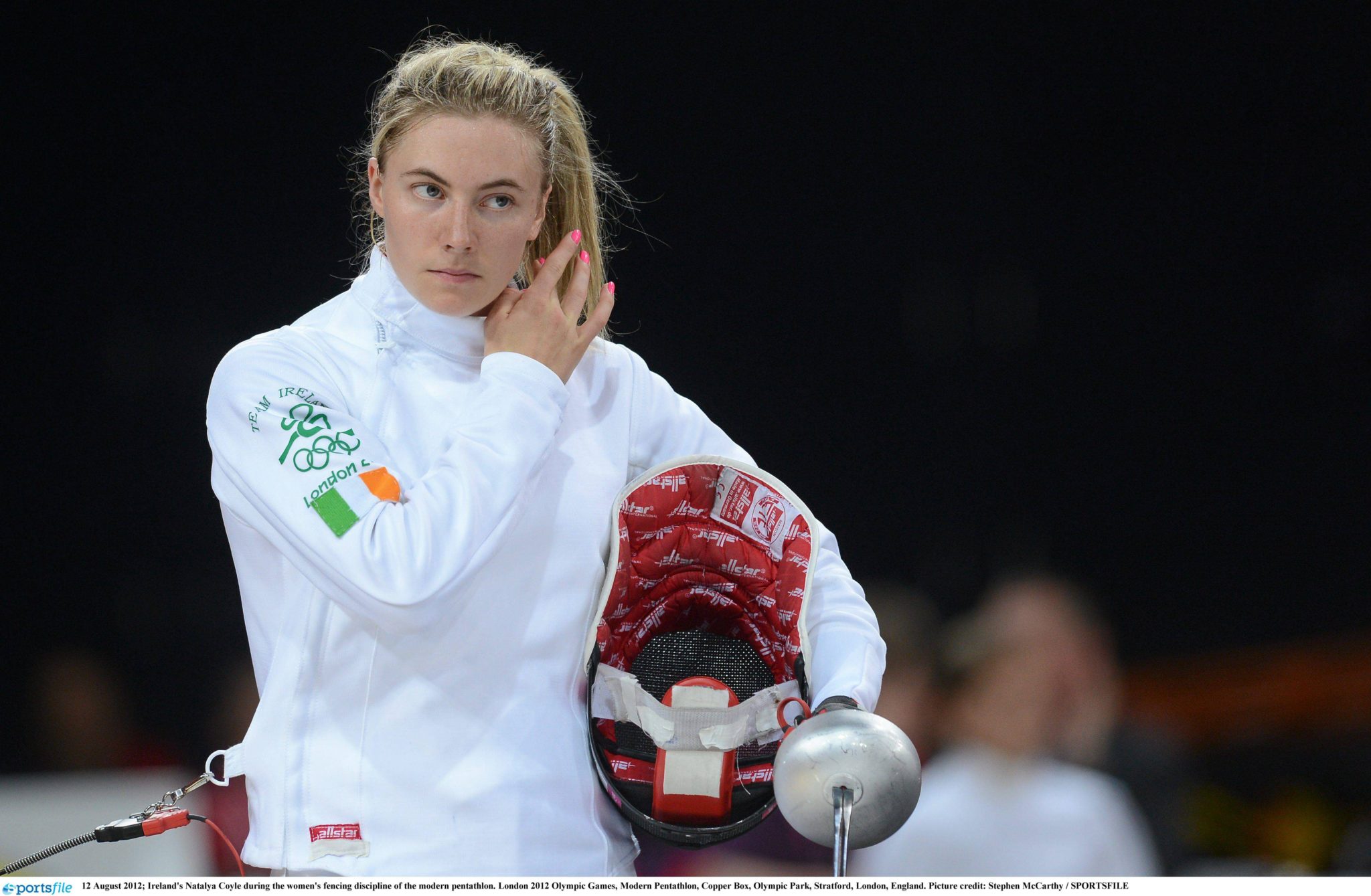
One sportsperson who has already raised the profile of the sport is modern pentathlete Natalya Coyle. She has already been to two Olympic Games and back in August of last year, she qualified for Tokyo 2020.
On the day of the Five Nations tournament, she was grouped with some of the up-and-coming talents. She said, “We won our first match against England but lost the second one 40-39. We have some younger girls on the team which is great for the future of Irish fencing."
Natalya knows that the current generation of fencers has a great pathway. Like Michalis though, she took up the sport when she was older.
“There are a lot of newer clubs which is really good. In the past, one of the problems was that fencing tended to be a college sport. I started with a group of girls who got good at the end of college but then they stopped. Now they continue on afterwards,” she said.
While there is a good pipeline of young fencers coming through, there isn’t the same quality at senior level just yet.
Since she is the number one-ranked woman in the country, Natalya often fences against men. For the moment though, she doesn’t mind it too much. “I like it, it’s good getting on the piste and kicking some men’s ass!", stated a laughing Natalya.
There is no doubt that fencing is growing in Ireland and, all going well, this current crop of fencers will be winning World and European Championships at senior level in the near future.
Download the brand new GoLoud App in the Play Store & App Store right now! We've got you covered!
Subscribe to OffTheBall's YouTube channel for more videos, like us on Facebook or follow us on Twitter for the latest sporting news and content.








